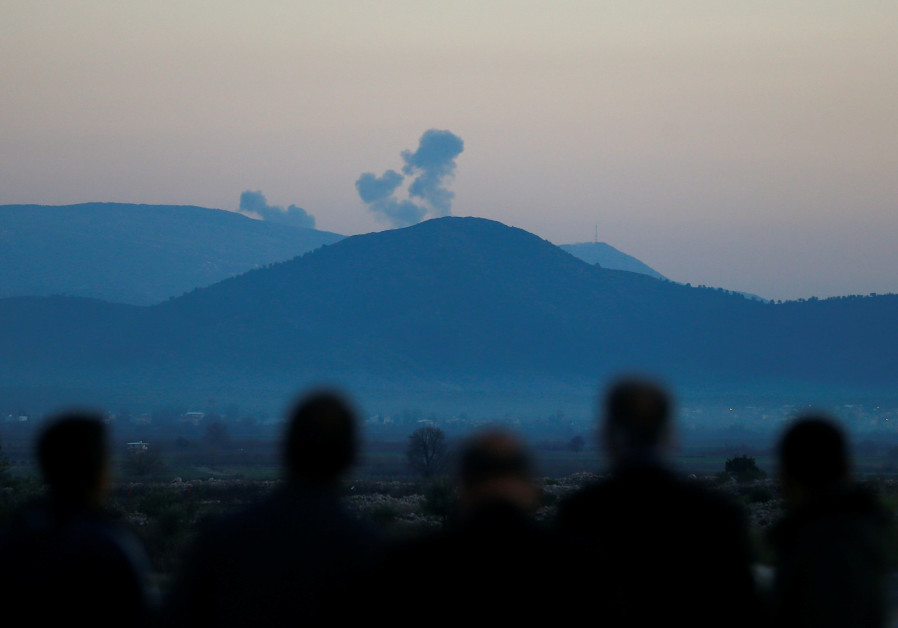Rhetoric from Ankara and Damascus downplays escalation developments in northern Syria

As pro-Syrian regime “popular forces” entered Syria’s northern Afrin province, Turkey increased its shelling and operations in northern Syria. Both the Syrian regime and Turkey claim to be fighting “terrorists” in Afrin, including Islamic State. In fact, their media obscure the reality of the conflict on the ground.
“This afternoon the popular forces deployed in Afrin to aid the people defending their villages and homes against the attacks of ‘Daesh’ terrorists,” Syria’s SANA state media organization claimed on Wednesday.
Without specifying which “popular forces” were involved, the state media claimed that the fighters had arrived to check the “aggression of the Turkish regime and its mercenaries and takfiri terrorist organizations.” Takfiri refers to Islamist extremists who accuse other Muslims of apostasy, usually a reference to Sunni jihadists who attack Shi’ites.
In Turkey Anadolu news agency, which is considered close to the government, announced on Tuesday that Turkey’s military operation, dubbed Olive Branch, had “neutralized a total of 1,780 PYD/PKK and Daesh terrorists.” It claimed that on Tuesday “65 terrorists were neutralized” in air strikes.
The Turkish media refer to the Kurdish People’s Protection Units (YPG) in Afrin as “PYD/PKK,” which is a reference to the Kurdistan Workers Party, which Ankara views as terrorists. Ankara sees that the PKK and YPG are part of the same organization.
Turkey launched its operation on January 20, claiming it was against ISIS and the PKK. Like Damascus, it has presented no evidence that there are elements of ISIS in Afrin. The YPG has been the major leader in defeating ISIS in Syria, so the accusation that there are ISIS members in Afrin is mysterious.
The reason that both the Syrian regime and Turkey claim to be fighting ISIS in Afrin is that the 74-member US-led coalition is also fighting ISIS, and Ankara and Damascus are seeking to align with that narrative.
The US has been critical of Turkey’s operation in Afrin. On January 22, Secretary of State Rex Tillerson said the US was calling on “both sides to show restraint, please minimize the impact on civilian casualties.” On January 23, the US-led coalition said that it was supportive only of offensive military actions “taken to defeat Daesh.” The Defense Department has also urged Turkey to “de-escalate,” while on February 11, Secretary of Defense James Mattis called Turkey’s offensive a “distraction.”
Now that pro-regime militias have entered Afrin, a new round of escalation has begun. The militiamen, some aligned with Liwa al-Baqir, a part of the pro-Iranian local defense forces in Syria, have been spotted in Afrin. One of their local fighters said he was there to oppose “the Ottomans,” a reference to Turkey. Before Tillerson’s visit last week, Ankara threatened to give the Americans an “Ottoman slap,” and its actions in Afrin are seen as seeking to send a message to Washington about support for the YPG in eastern Syria.
However, the Syrian regime and Ankara are proceeding with caution. If they can both claim to be fighting “terrorists” and “Daesh” in Afrin, they can avoid the reality, which is that they are being drawn closer to open conflict that will involve Moscow and Washington.
As reported by The Jerusalem Post
